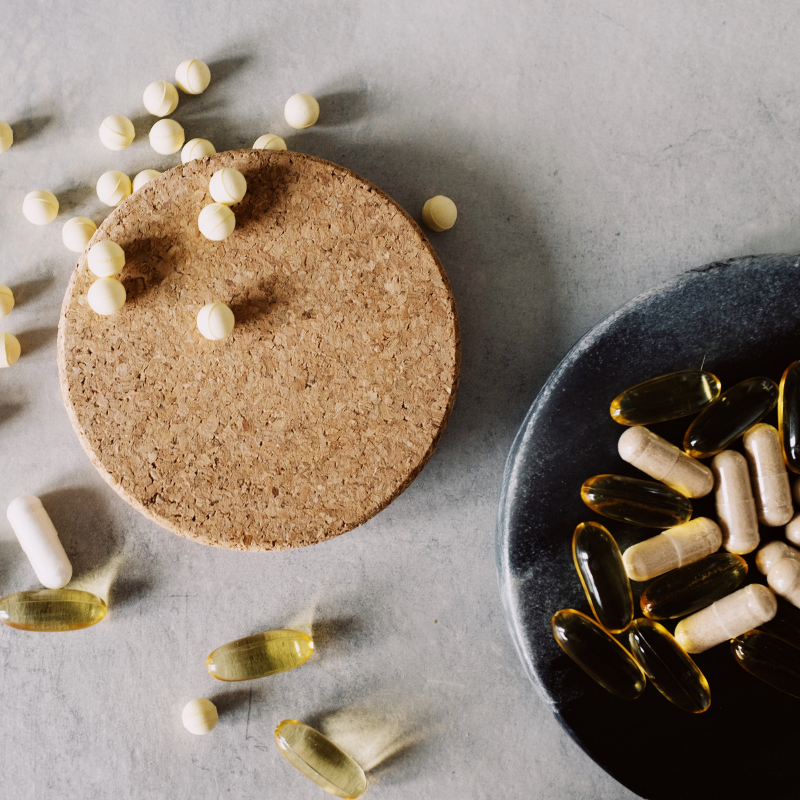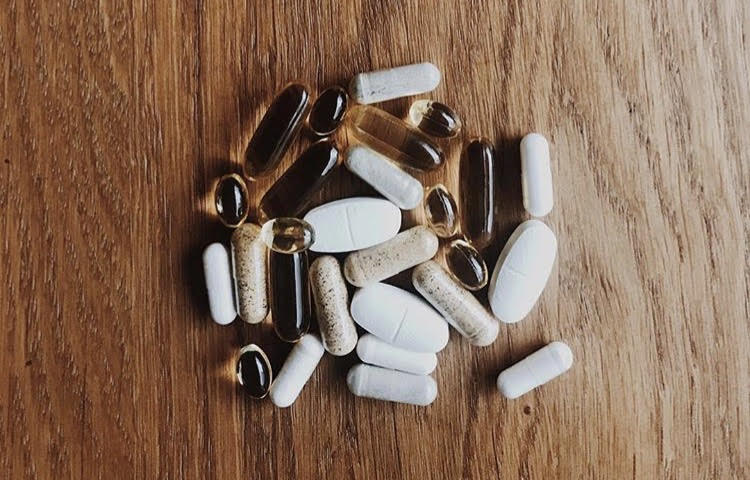A common question we get asked at Vive is what the differences between ‘Over-the-Counter’ (OTC) and ‘Practitioner Only’ (PO) products are. There are some important differences with regards to quality & efficacy between them that are important to discuss.
As practitioners, we care deeply about efficacy, safety & prescribing reliable, quality formulas that have evidence to back up the ingredients they contain. More often than not, we can rely on PO products for the reasons listed above. Self-prescribing OTC supplements is something we observe a lot of at Vive and is a common reason people don’t achieve the results they had hoped for. To achieve a therapeutic effect the dosage, form & duration of prescription are essential. For these reasons consulting with a qualified practitioner is always the best path toward resolving your health concerns.
This is one of the reasons we are now offering FREE Acute Care Consultations with one of our qualified Naturopaths or Nutritionists in addition to our regular consultations via the Vive Clinic. So you can be sure that your are prescribed the most effective & appropriate treatment for your individual needs. To read more about these FREE Acute Care Consultations please click here.
These closed door confidential Acute Care Consultations enables us to understand your health concerns better & prescribe formulations from the PO brands we carry in the clinic.
These are the fundamental values by which we critique OTC vs PO products & why it’s so important to seek professional advice before commencing any supplement regime:
Efficacy
The therapeutic efficacy of a product is determined by a number of factors. The most important being the choice (& quality) of ingredients & the forms of nutrient(s) &/or plant parts that are used within the formula. The combination of ingredients is also just as important, some ingredients work better together than on their own, this is known as synergy. A well-known & evidence-based example of synergy would be the addition of Vitamin C to Iron supplements to enhance absorption.
With regards to ingredients, often OTC products contain inexpensive & poorly bioavailable forms of nutrients or incorrect/less active components of the herb (i.e. using the leaves & flowers instead of the root). Bioavailability simply refers to the ability for a substance (i.e nutrient or herbal constituent) to enter circulation & be used by the body. Therefore for a nutrient to illicit beneficial influence over the body high bioavailability is required. Products with low bioavailability are not well absorbed & therefore carry very little benefit.
 A classic example here is when comparing Magnesium bisglycinate with Magnesium oxide. The former is a highly bioavailable & effective but more costly form of magnesium, whereas the latter is a poorly bioavailable but cheap form of magnesium. It’s not surprising to know that the latter is commonly used in very low-cost OTC magnesium supplements. The general consumer doesn’t know the difference & believes they are getting a great deal when purchasing their low-cost product. It’s also not uncommon for ingredients in OTC products to be in levels that are too low to have any therapeutic effect.
A classic example here is when comparing Magnesium bisglycinate with Magnesium oxide. The former is a highly bioavailable & effective but more costly form of magnesium, whereas the latter is a poorly bioavailable but cheap form of magnesium. It’s not surprising to know that the latter is commonly used in very low-cost OTC magnesium supplements. The general consumer doesn’t know the difference & believes they are getting a great deal when purchasing their low-cost product. It’s also not uncommon for ingredients in OTC products to be in levels that are too low to have any therapeutic effect.
Low-cost OTC products may also contain high amounts of unnecessary excipients to help bind, stabilise & bulk out the product. Some of these excipients used, especially in very cheap products, can actually reduce the bioavailability of the active ingredients thereby further reducing their effect on the body. Low-cost OTC products may also contain allergenic ingredients such as wheat, gluten, dairy, soy & artificial colours/flavourings etc.
Quality
When it comes to products that contain herbal medicines, the quality of raw ingredients used can vary widely between OTC & PO products. PO companies utilize vigorous batch testing to ensure that the herbs that are used are:
- not adulterated, &;
- contain the correct potency of active constituents.
The process of batch testing each raw ingredient can be fairly costly for companies, therefore to keep costs down, this process isn’t often done to the same extent with OTC herbal products. Adulteration is a common problem when purchasing herbal supplements & raw herbal ingredients internationally. Supplement manufacturers receive raw herbal ingredients, often from overseas suppliers/growers, to manufacture their products. It’s not unusual for the herb that is received to be of a different species (or different herb altogether).
Therefore, one herb may be clearly written on the label but it may be something very different in the bottle. That higher price tag you pay for PO products is paying for the assurance that you are getting what you paid for.
*It’s important to note however not all OTC brands are created equally, the spectrum of quality is very broad. There are a number of OTC brand which do produce quality products. It’s important to get in touch with your trusted health care provider in order to recommend the most appropriate course of treatment for you
Safety
One of the biggest misconceptions with all supplementation is that it comes without risk, that you can take any herb or nutrient for as long as you wish without causing harm. This really couldn’t be further from the truth & one of the major reasons consulting a qualified practitioner is so important. Even in acute situations.
PO products routinely contain the therapeutic dosages (or very close to) that are required f or specific health concerns, which is another important reason they are recommended for practitioner prescription only. It’s crucial to understand that herbal medicines & nutrients are powerful therapeutic agents & need to be prescribed under the guidance of a qualified practitioner.
or specific health concerns, which is another important reason they are recommended for practitioner prescription only. It’s crucial to understand that herbal medicines & nutrients are powerful therapeutic agents & need to be prescribed under the guidance of a qualified practitioner.
Another dangerous misconception about supplements, both OTC & PO, is that because they are seen to be ‘safe & without risk’, they can be taken alongside medications. As practitioners, we have access to databases that thoroughly check for contraindications with medications to ensure that what is prescribed to you is safe.
An example of a medication/herb interaction would be for women taking oral contraceptive medications, there are a number of commonly used herbs (esp. those that promote liver detoxification) that can increase the metabolism of the medication & therefore reduce its effectiveness. This means an increased chance of unplanned pregnancy occurring.
We hope this has clear up some confusion about the difference between OTC & PO products & why consulting with a professional is not only the safest but most effective way to better your health. If you have any further questions please feel free to chat to us in-store.
We can’t wait to welcome you into the Vive Clinic.
To book an Acute Care Consultation please call Vive on 3399 1002.
Acute Care Consultations are available as in-person consultation only.
To book a regular initial consultation with one of our incredible clinical team please follow the link here or call Vive
Over-the-counter: supplements are able to be purchased from any retail outlets (i.e. health food stores, chemists, grocery stores) without being prescribed by a qualified health practitioner.
Practitioner only**: refers to products that are only accessible via consultation with a qualified practitioner.
**Practitioners only is also a recommendation by the Therapeutic Goods Administration (TGA), which is the strictest therapeutics governing body in the world. You can ready about what this means here on the TGA website: https://www.tga.gov.au/sites/default/files/australian-regulatory-guidelines-complementary-medicines-argcm.pdf

